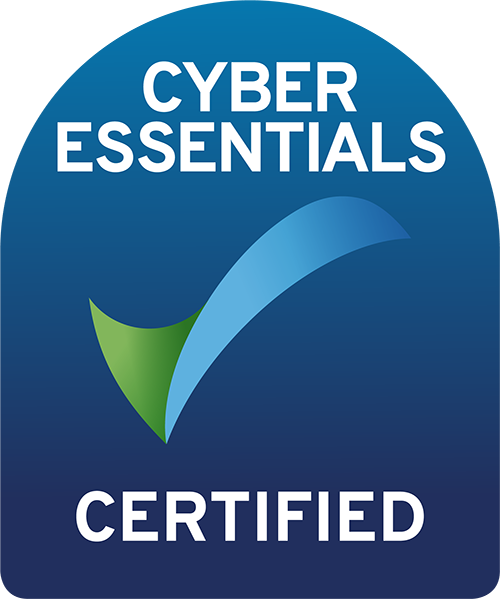Promoting consistency and reliability in health and care data: the NHS Standards Directory
by Adam Milward , November 26th, 2024
Bharat Sharma, Lead Product Manager of standards.nhs.uk, Technology, Strategy, Architecture and Standards, NHS England, and Adam Milward, CEO, MetaDataWorks, discuss key steps in the launch of the NHS Standards Directory in the light of the draft Data Use and Access Bill, currently making its way through the House of Lords.
Consider this analogy:
Let’s think for a moment of the NHS as a restaurant, with the healthcare providers as the chefs. Without clear recipes, different equally accomplished chefs in the restaurant will receive the same order but might make the dish using different amounts of different ingredients and serve on different crockery. As customers look around the restaurant and catch sight of another table with, in their view, a much more delicious version of their dish, we can’t imagine the restaurant would thrive.
The same goes for data logging and management. Two competent healthcare providers may be presented with the same patient but log their attributes in different terminology, using different standards and on different systems. It’s therefore easy to see why NHS standards have struggled to keep pace with the evolving needs of citizens, patients and healthcare providers. The constant evolution of treatment options and launch of new health and care sub-organisations (new menu items, additional chefs and more customers) within the NHS inevitably leads to providers using varying systems and standards as they record and process crucial health data.
The Data Use and Access Bill
Today, more than ever, the world is waking up to the need for clarity and immediate access to data, and it’s no different in the NHS. The NHS Standards Directory is being developed at a pivotal time, as the draft Data Use and Access Bill is making its way through the House of Lords, aiming to modernise the NHS by setting stricter data quality and security benchmarks.
The bill aims to support the government’s 10-year health reform plan, which seeks to improve the NHS through better infrastructure and higher data quality standards. It mandates that technology providers in healthcare adhere to strict technical and security standards, with enhanced oversight from the Information Commissioner’s Office.
A vision for consistency and reliability
Late in 2022, a good time ahead of the release of the draft bill, NHS England and MetadataWorks came together with a clear vision to promote consistency and reliability in health and care data, with a view to improving data quality and security and increasing the possibility for collaboration and across departments. This led to the development of what is now the NHS Standards Directory.
This signposting service is the first step in ensuring NHS England is not only compliant with the new bill (if and when it is passed) but stays at the forefront of technological developments and operates as a ‘best in class’ model for data use and management.
What is the NHS Standards Directory?
The first of its kind NHS Standards Directory provides a reliable and trusted service allowing healthcare providers to access information on many widely adopted standards in one place. In our restaurant analogy, the directory provides the chefs with all the recipes they need in one easy to use cookbook.
Effective standards must evolve with the times, be inclusive, and be accessible so everyone can contribute, benefit, understand, and adopt them. The Directory not only houses the standards, but allows accredited users to set and update them, so the system keeps pace with new knowledge and developments. New recipes can always be added, and chef’s feedback can help inform adjustments to existing recipes.
Six key steps in the development of the NHS Standards Directory
In order to develop the directory we;
- Carried out user research to identify user’s key needs when searching for and interacting with standards
- Designed a metadata profile to describe a standard, that uses standards, like DCAT and Schema.org to capture and present information effectively
- Deployed the metadata profile within the MetadataWorks toolkit, allowing for iterative testing and refinement based on user feedback
- Moved content from the previous inflexible system into MetadataWorks to streamline access and management of standards in an easy to use interface
- Seamlessly integrated the data held about standards in MetadataWorks into the existing website, to maintain look-and-feel and minimise disruption
- Prototyped, tested, and iterated the system through continuous user feedback to ensure optimal usability and functionality
Why it matters
The NHS Standards Directory is designed to bring England’s health and care data practices up to speed with the Data Use and Access Bill‘s goals, through signposting to recognised published and future standards in health and adult social care.
- Standards offer clear guidelines that ensure best practices are followed consistently across health and care services.
- The NHS Standards Directory provides easy access to up-to-date information on widely adopted standards.
- The NHS Standards Directory supports consistent, high-quality practices across the NHS, improving patient care and operational efficiency.
Here’s some of the benefits the directory provides:
Improved Flow of Information (Data Interoperability): NHS England consists of thousands of organisations—hospitals, GP practices, ambulance services, and community care facilities—often using different IT systems, methodologies and terminology. Clearly, in healthcare it’s fundamental that patient data can be transferred accurately and in real-time. The Standards Directory promotes standards that support more interoperable IT systems, which reduces delay in care, as healthcare providers have quick access to the complete health records they need, regardless of the system they use.
Enhanced Security: Particularly key to the proposed Data Use and Access Bill, our Standards Directory promotes robust security protocols, setting clear and strict requirements via standards such as Secure Email and the Data Security and Protection toolkit across all NHS systems. This is of paramount importance for us, as sensitive health information needs to be safeguarded against unauthorised access. Such standards support compliance with regulatory requirements like GDPR, allowing NHS England to use patient data responsibly while prioritising privacy.
Data Quality and Consistency: A universal Standards Directory helps maintain high data quality and ensures consistency across NHS England. It provides best practice guidelines for how data should be formatted, stored, and accessed, minimising issues like duplicate records or data discrepancies, which could have the potential to negatively impact healthcare outcomes.
Cost Efficiency: Creating uniform standards should reduce administrative burdens and lower costs associated with data management. Our system reduces the need for custom data integrations and cuts down on errors, saving time and resources that could be better spent elsewhere.
A user friendly experience: Standards aren’t useful if people don’t know they are there and they aren’t being used. MetadataWorks provides ongoing consultancy to add proposed improvements based on user’s feedback that ensures standards are easy to find, contains knowledge that is simple to read yet insightful for implementation.
The Standards Directory builds strong foundations that enable the adoption of impactful technology across the NHS, ultimately improving healthcare outcomes and future proofing the nation’s health system.
Broader applications and industry-wide impact
A standards directory isn’t just beneficial for the NHS; it’s essential for other sectors as well. There are parallel use cases within other industries, such as finance, logistics, and telecommunications, looking to standardise their data and improve interoperability in line with the Data Use and Access Bill.
By standardising security practices, businesses can ensure consistent and secure data handling, building trust with customers and partners alike. The majority of businesses handling data in any notable volume could save time and resources by implementing a Standards Directory, which would otherwise be spent on custom integrations and data conversions, making operations more cost-effective and reliable.
For more information on creating a standards directory, or simply for further background on getting the most out of your data, contact MetadataWorks directly by emailing hello@metadataworks.co.uk.
Join the conversation
By helping the NHS and care systems to implement these standards, we aim to improve and build strong foundations for collaboration, ultimately benefiting service users, patients, and citizens.
We invite you to join the NHS England Standards and Interoperability workspace via the FutureNHS platform. Connect with a community of like-minded individuals dedicated to improving our health and care systems through effective standards. Join this community via https://future.nhs.uk/Standards_and_Interoperability (Account required on the FutureNHS site before requesting to join this workspace – Free to join).
Discover standards that help data work together for users in England. Access the NHS Standards Directory: https://standards.nhs.uk/




